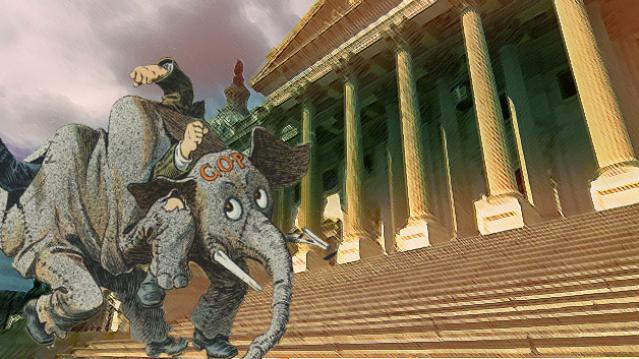The 2016 Presidential Debates Could Become a Slugfest

Few could doubt the impact of nationally televised presidential debates after Republican Mitt Romney set President Obama back on his heels in their first encounter in October 2012.
Romney was articulate and aggressive while Obama appeared frazzled and very much off his game. Romney’s commanding performance helped the former Massachusetts governor briefly energize his floundering campaign and regain its momentum.
Related: Clinton Plays the Gender Card as a Campaign Strategy -
Moreover, with home viewership topping 67 million, the debate -- moderated by Jim Lehrer, the former news anchor for the PBS News Hour – broke a 32-year gross viewership record dating back to the first debate between Democratic President Jimmy Carter and Republican challenger Ronald Reagan in 1980.
Yet amid dramatic changes in political campaign tactics and fundraising and the way Americans consume the news, these televised general election presidential debates actually are suffering from diminished reach.
A new study issued on Wednesday by the Annenberg Public Policy Center at the University of Pennsylvania seemed to compare presidential debates to TV entertainment. Their assessment: the more than two-decade old debate format is to blame for the low viewership among millennials, although baby boomer viewers have increased.
Related: Why Marco Rubio Might Just Beat Hillary Clinton
So what to do? In an era when large audiences pay far more attention to “Game of Thrones,” “House of Cards,” “Master Chef” and “So You Think You Can Dance” than to increasingly lengthy presidential campaign seasons, how can the political parties and the National Presidential Debate Commission jazz up the debates to attract and keep a wider audience?
The Annenberg panel, of course, stops well short of recommending the equivalent of no-holds barred political mudwrestling to heighten audience engagement and sustained interest. The goal, the group says, is to expand and enrich debate content and produce a better informed group of voters.
To that end, the advisory group appears anxious to get rid of the moderator or middle man as much as possible and allow the two candidates to set the agenda and duke it out. They want to get rid of the one or more prominent journalists who set the ground rules and determine the pace and course of the evening’s discussion.
Related: GOP Prunes the 2016 Primary Debates Down to Nine
If, for example, Hillary Clinton were to slam, say, Marco Rubio in a debate, Rubio shouldn’t have to wait patiently for his opportunity to reply but should be allowed to jump in with a rejoinder. Think of it as the resurrection of CNN’s Crossfire.
To add a smidgeon of Jeopardy to the proceedings, each candidate would have a total of 45 minutes to spend to make their case or defend it.
While the candidates would have plenty of opportunity to get their political messages across, they would also have to respond quickly to attacks. A well-scripted candidate wouldn’t necessarily do well in that setting, and the possibility of “oops” moments would be increased. Welcome to reality TV, Beltway style.
Related: The GOP Hunger Games: Who Will Make the Debate Cut?
Ah….but dead air is not an option, so a filibuster is off the table. No answer, rebuttal or question could exceed three minutes, according to the panel. When a candidate runs out of total time, he or she has exhausted the right to speak. Remaining time at the end of the moderator-posed topics can be used for a closing statement.
The recommendations are advisory only and it will be up to the presidential debate commission and the national parties to iron out the final ground rules next year.
Will Trump's Tax Cuts Really Happen? Economists Are Surprisingly Optimistic
Despite all the thorny questions swirling around President Trump's nascent tax reform plan, 29 of 38 economists surveyed by Bloomberg in a monthly poll said they expect Congress to cut taxes by November of next year.
The hitch: The economists don’t expect the cuts will help the economy much. The median projection of a larger group of 71 economists is for 2018 growth of 2.3 percent, up only slightly from 2.1 percent this year — and by 2019, the economists see growth slipping back to 2 percent.



